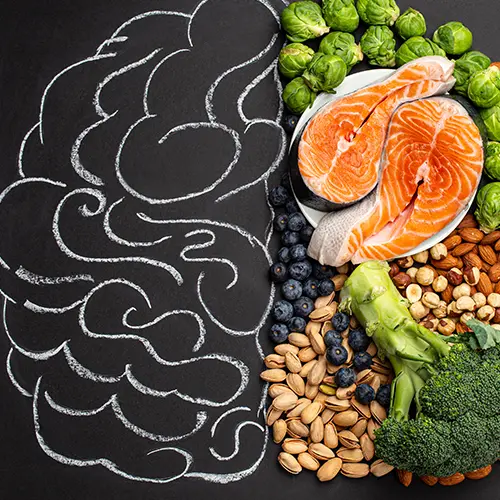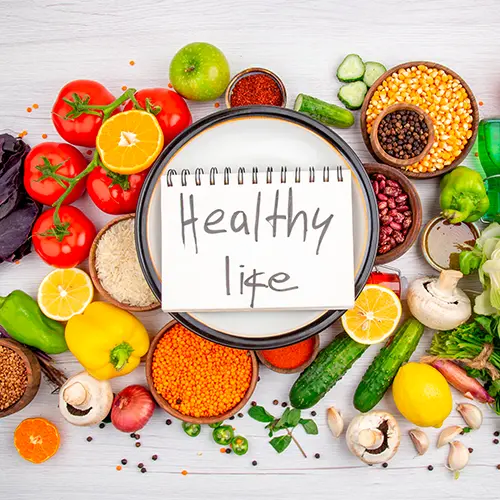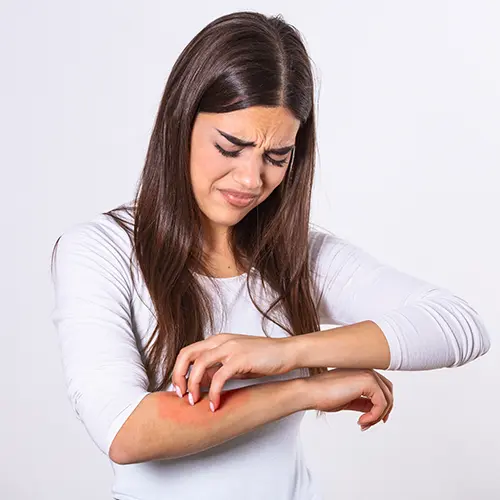Table of Contents
In a world where a bright, white smile is often seen as a key to confidence, many are tempted to try various teeth whitening methods. The blog post, "Natural Teeth Whitening: Safe Methods and Myths Debunked," offers an enlightening exploration into this popular trend.
This post aims to guide readers through the maze of natural teeth whitening techniques, distinguishing between safe practices and harmful myths. It addresses the growing allure of 'do-it-yourself' remedies and over-the-counter products, critically examining their effectiveness and safety.
The blog brings to light the scientific truths behind common ingredients used in natural whitening methods, such as baking soda, lemon, and activated charcoal.
Moreover, it debunks widespread misconceptions, providing readers with informed choices about their oral health.
Through expert opinions and evidence-based research, this post is a valuable resource for anyone seeking to achieve a brighter smile without compromising their dental health. It's a must-read for those looking to enhance their smile naturally and safely.
What are some safe natural methods for teeth whitening?
There are several natural methods for teeth whitening that are considered safe. However, it's important to note that while these methods can help remove surface stains, they are usually not as effective as professional teeth whitening treatments. Here are some commonly recommended natural methods:
Baking Soda: Using a toothpaste that contains baking soda or mixing a small amount of baking soda with water to create a paste can help gently remove surface stains on teeth.
Hydrogen Peroxide: A mild bleach that can help to whiten stained teeth. It's often used in low concentrations in mouthwashes and whitening toothpastes. However, using it in higher concentrations or too frequently can lead to sensitivity and gum irritation.
Oil Pulling: This traditional Indian folk remedy involves swishing oil around in your mouth to remove bacteria, which can turn into plaque and cause your teeth to look yellow. Commonly used oils include coconut, sunflower, and sesame oil.
Fruits and Vegetables: A diet high in fruits and vegetables may be good for both your body and your teeth. Crunchy, raw fruits and vegetables can help rub plaque away as you chew. Strawberries and pineapple are two fruits that have been claimed to help whiten your teeth.
Apple Cider Vinegar: This has been used for centuries as a disinfectant and natural cleaning product. The acetic acid in vinegar has the potential to whiten teeth, but it also has the potential to cause damage to the hardness and surface structure of teeth if used too frequently.
Activated Charcoal: It’s believed that charcoal can remove pigments and stains from your teeth because it's highly absorbent. It's also said to be able to remove bacteria and toxins from the mouth.
Good Oral Hygiene: Maintaining excellent oral hygiene is the first step in getting whiter, healthier teeth. Regular brushing and flossing can prevent tooth staining and help maintain your oral health.
It's important to remember that while these methods can help with surface stains, they are not a substitute for regular dental care and may not be effective against deeper stains or discoloration. It's always a good idea to consult with your dentist before trying any new dental treatments, even natural ones, to ensure they're appropriate for your situation.
Can charcoal really whiten teeth?
Activated charcoal is often marketed as a natural teeth whitening agent, but its effectiveness and safety as a teeth whitener are subjects of debate among dental professionals.
How It's Thought to Work:
Absorption of Stains: Activated charcoal is highly porous and has adsorptive properties, meaning it can bind to toxins and odors, which is why it's used in air filtering and water purification. This property is believed to help remove surface stains from the teeth.
Physical Abrasion: The slightly gritty texture of charcoal might also physically scrub away some stains on the tooth surface.
Concerns and Considerations:
Limited Scientific Evidence: There is a lack of substantial scientific evidence to support the claim that charcoal effectively whitens teeth. Most of the positive reports are anecdotal.
Abrasive Nature: Charcoal can be abrasive, which might pose a risk to the enamel if used regularly or aggressively. Enamel erosion can lead to increased sensitivity and make teeth more prone to cavities.
Potential Risks: Regular use of charcoal products can lead to dental erosion and enamel deterioration. It may also cause tooth sensitivity and gum irritation, particularly if the product is overly abrasive.
Effectiveness: While it may remove some surface stains, it is unlikely to change the intrinsic color of the teeth, which is what professional whitening treatments aim to do.
Lack of Fluoride: Many charcoal toothpastes do not contain fluoride, which is essential for fighting tooth decay.
Is it safe to use lemon or other citrus fruits to whiten teeth?
Using lemon or other citrus fruits to whiten teeth is a popular home remedy, but it's important to exercise caution with this method due to the potential risks to your dental health.
Risks and Concerns:
Acid Erosion: Lemon and other citrus fruits are highly acidic. This acid can erode the enamel, the hard, protective outer layer of your teeth. Enamel erosion can lead to increased tooth sensitivity, make your teeth more susceptible to cavities, and cause your teeth to appear more yellow as the darker dentin layer underneath becomes more visible.
Tooth Sensitivity: As the enamel wears away due to acid exposure, teeth can become increasingly sensitive to hot, cold, and sweet foods and beverages.
Damage to Gums: Citric acid can also irritate or damage your gum tissue, leading to gum recession or other gum problems.
Safer Alternatives:
Instead of using acidic substances like lemon or other citrus fruits, consider safer alternatives for teeth whitening:
Over-the-Counter Whitening Products: These products, such as whitening toothpastes or strips, are specifically designed for teeth and are generally safer than acidic home remedies. They often contain mild abrasives or chemicals that can help remove surface stains.
Professional Whitening Treatments: Dental professionals offer various teeth whitening treatments that are both safe and effective. These treatments can address deeper stains and discoloration.
Natural Remedies: While less effective than professional treatments, some natural remedies like baking soda or activated charcoal (used cautiously) can help remove surface stains.
Best Practices:
Good Oral Hygiene: Regular brushing and flossing, along with routine dental check-ups, are the best ways to maintain healthy, white teeth.
Dietary Choices: Limiting foods and beverages that stain teeth (like coffee, tea, and red wine) can help maintain whiter teeth.
Consult Your Dentist: Before trying any new whitening method, especially home remedies, it's wise to consult with your dentist. They can recommend the most appropriate and safe methods for your specific dental health needs.
How effective is oil pulling for teeth whitening?
Oil pulling, an ancient practice originating from Ayurvedic medicine, involves swishing oil (typically coconut, sesame, or sunflower oil) in your mouth for a period, usually around 15 to 20 minutes, and then spitting it out. It's claimed to have several oral health benefits, including teeth whitening. However, the effectiveness of oil pulling for teeth whitening and its overall benefits are subjects of ongoing debate and research in the dental community.
Potential Benefits:
Plaque Reduction: Some studies suggest that oil pulling can reduce plaque and bacteria in the mouth, which in turn may help in reducing stains and yellowing associated with plaque build-up.
Gum Health: Oil pulling might improve gum health, which can contribute to a healthier-looking smile.
Reduction of Halitosis: It may help in reducing bad breath, possibly due to the removal of bacteria and other debris from the mouth.
Regarding Teeth Whitening:
Surface Stain Removal: While oil pulling might help in removing some surface stains due to its potential in plaque reduction, it's unlikely to have a significant whitening effect on deeply stained or naturally yellow teeth.
Lack of Bleaching Agents: Unlike commercial whitening products that contain bleaching agents like hydrogen peroxide, oil pulling does not chemically whiten teeth. Its whitening effect, if any, is more likely to be subtle and gradual.
Scientific Evidence:
Limited Research: There is limited scientific research on the effectiveness of oil pulling specifically for teeth whitening. Most of the existing studies focus on general oral health benefits.
Anecdotal Reports: Many of the claims regarding the whitening effects of oil pulling are anecdotal and not backed by robust scientific evidence.
Safety and Considerations:
Generally Safe: Oil pulling is considered safe for most people if done correctly. It's important not to swallow the oil, as it contains bacteria and toxins from the mouth.
Not a Substitute for Regular Oral Care: Oil pulling should not replace regular dental care practices like brushing, flossing, and regular dental check-ups.
Allergies: Individuals with allergies to specific oils should avoid using them for oil pulling.
Can brushing with baking soda whiten teeth?
Yes, brushing with baking soda can help whiten teeth, but it should be done cautiously and with an understanding of its limitations and potential risks.
How Baking Soda Works for Teeth Whitening:
Mild Abrasive: Baking soda (sodium bicarbonate) is a mild abrasive. This means it can help physically remove surface stains from teeth, which can make teeth appear whiter. These stains are often from things like coffee, tea, or tobacco.
Natural Whitening Agent: Baking soda is often touted as a natural teeth whitening agent. It's not a bleach like hydrogen peroxide, so it won't whiten teeth beyond removing surface stains.
Alkaline Nature: The alkaline nature of baking soda can help neutralize acids in the mouth, which can reduce the risk of tooth decay and improve overall oral health.
Limitations and Considerations:
Surface Stains Only: Baking soda is effective at removing surface stains, but it doesn't have the ability to lighten the actual color of the teeth or remove deeper stains that lie within the tooth enamel.
Abrasive Nature: While it's a mild abrasive, excessive use can still damage the enamel over time. This can lead to increased tooth sensitivity and make your teeth more prone to cavities.
Lack of Fluoride: Baking soda doesn't contain fluoride, which is important for strengthening tooth enamel and preventing tooth decay.
Safe Usage:
Occasional Use: It's generally safe to use baking soda to brush your teeth occasionally. For instance, some people might use a baking soda and water paste once a week.
Gentle Brushing: When using baking soda, brush gently to avoid damaging the enamel.
Not a Replacement for Toothpaste: Baking soda should not replace your regular fluoride toothpaste. It's best used in addition to your regular oral care routine.
Dilution is Key: Mixing baking soda with water to create a paste is a common method. Avoid using it in its dry form directly on your teeth.
How can I maintain the whiteness of my teeth naturally?
Maintaining the whiteness of your teeth naturally involves a combination of good oral hygiene practices, dietary choices, and potentially some natural remedies. Here are some tips to help keep your teeth white:
Good Oral Hygiene
Regular Brushing and Flossing: Brush your teeth at least twice a day with fluoride toothpaste and floss daily. This helps remove plaque and food particles that can lead to staining.
Use a Whitening Toothpaste: Some toothpastes are specially formulated to help remove surface stains. They usually contain mild abrasives, which can be effective for maintaining whiteness.
Regular Dental Check-ups: Visit your dentist regularly for professional cleanings and check-ups. Your dentist can remove surface stains and tartar that you can't get rid of with brushing and flossing alone.
Diet and Lifestyle Choices
Limit Staining Foods and Beverages: Coffee, tea, red wine, dark sodas, and dark berries can stain teeth. Limit these or rinse your mouth with water after consuming them.
Avoid Tobacco: Smoking or using other tobacco products can cause significant staining of teeth.
Drink Water: Drinking water throughout the day helps wash away food particles and bacteria. It's especially important to drink water after consuming staining foods and beverages.
Use a Straw: When drinking beverages that stain, use a straw to minimize contact with your teeth.
Natural Remedies and Practices
Baking Soda: Occasionally brushing with a paste made of baking soda and water can help remove surface stains.
Oil Pulling: As a traditional remedy, swishing oil like coconut oil in your mouth for 15-20 minutes may help reduce plaque and bacteria, potentially helping to maintain whiteness.
Eat Crunchy Fruits and Vegetables: Crunchy, raw fruits and vegetables can help rub plaque away as you chew. Apples, carrots, and celery are good examples.
Things to Avoid
Overuse of Acidic or Abrasive Substances: Avoid using lemon juice, vinegar, or overly abrasive substances like charcoal too frequently, as they can erode enamel.
DIY Bleaching: Be cautious with any DIY bleaching techniques. Misuse can lead to permanent damage to your teeth and gums.
FAQ
What are some safe natural methods for teeth whitening?
Safe natural methods for teeth whitening include brushing with baking soda, using hydrogen peroxide as a mouthwash, eating fruits like strawberries and apples, and oil pulling with coconut oil. These methods are gentle and can help remove surface stains. However, they are less effective than professional treatments.
Can charcoal really whiten teeth?
Activated charcoal is often touted as a natural teeth whitener. While it can remove some surface stains due to its abrasive nature, it's not recommended by most dental professionals. Its abrasiveness can wear down tooth enamel, leading to sensitivity and an increased risk of cavities.
Is it safe to use lemon or other citrus fruits to whiten teeth?
Using lemon or other citrus fruits for teeth whitening is a common myth. While they might remove some surface stains due to their acidity, they can also erode tooth enamel. This erosion can lead to increased tooth sensitivity and a higher risk of cavities.
How effective is oil pulling for teeth whitening?
Oil pulling, particularly with coconut oil, is an ancient practice claimed to whiten teeth and improve oral health. While it can help in reducing bacteria and plaque, the evidence for its teeth whitening effectiveness is limited. It's more of a supplementary oral hygiene practice rather than a primary whitening method.
Can brushing with baking soda whiten teeth?
Yes, brushing with baking soda can help in whitening teeth. Baking soda is mildly abrasive, which helps in removing surface stains. However, it should be used cautiously as excessive use can damage tooth enamel.
Are there any risks associated with natural teeth whitening methods?
Some natural methods, especially those that are abrasive or acidic, can damage tooth enamel if used improperly. It's essential to use these methods cautiously and not substitute them for regular dental care and professional advice.
How can I maintain the whiteness of my teeth naturally?
To maintain the whiteness of your teeth, practice good oral hygiene, avoid stain-causing foods and drinks like coffee and red wine, quit smoking, and consider using a whitening toothpaste. Regular dental check-ups and cleanings are also important.
Do over-the-counter natural teeth whitening products work?
The effectiveness of over-the-counter natural teeth whitening products varies. Some may provide mild whitening effects, but they are generally less effective than professional treatments. Always look for products with ADA (American Dental Association) approval for safety and effectiveness.
Can dietary changes help in teeth whitening?
While dietary changes won't dramatically whiten teeth, eating crunchy fruits and vegetables can help scrub your teeth and keep them clean. Avoiding foods and beverages that stain teeth can also prevent further discoloration.
Is professional teeth whitening better than natural methods?
Professional teeth whitening is generally more effective and faster than natural methods. Dentists use higher concentrations of whitening agents, which can provide significant results in a shorter time. However, professional treatments are more expensive and may not be suitable for everyone.




















